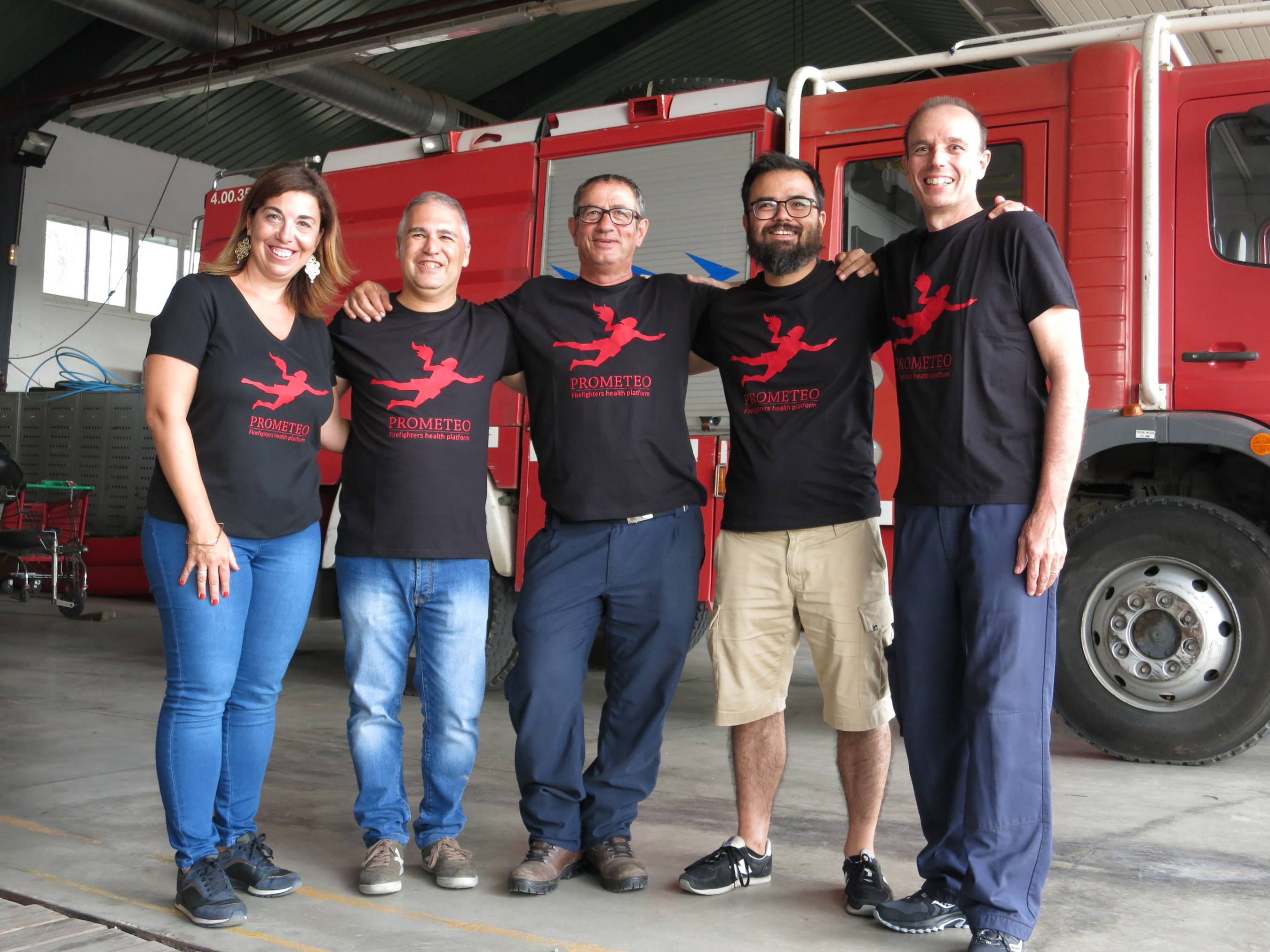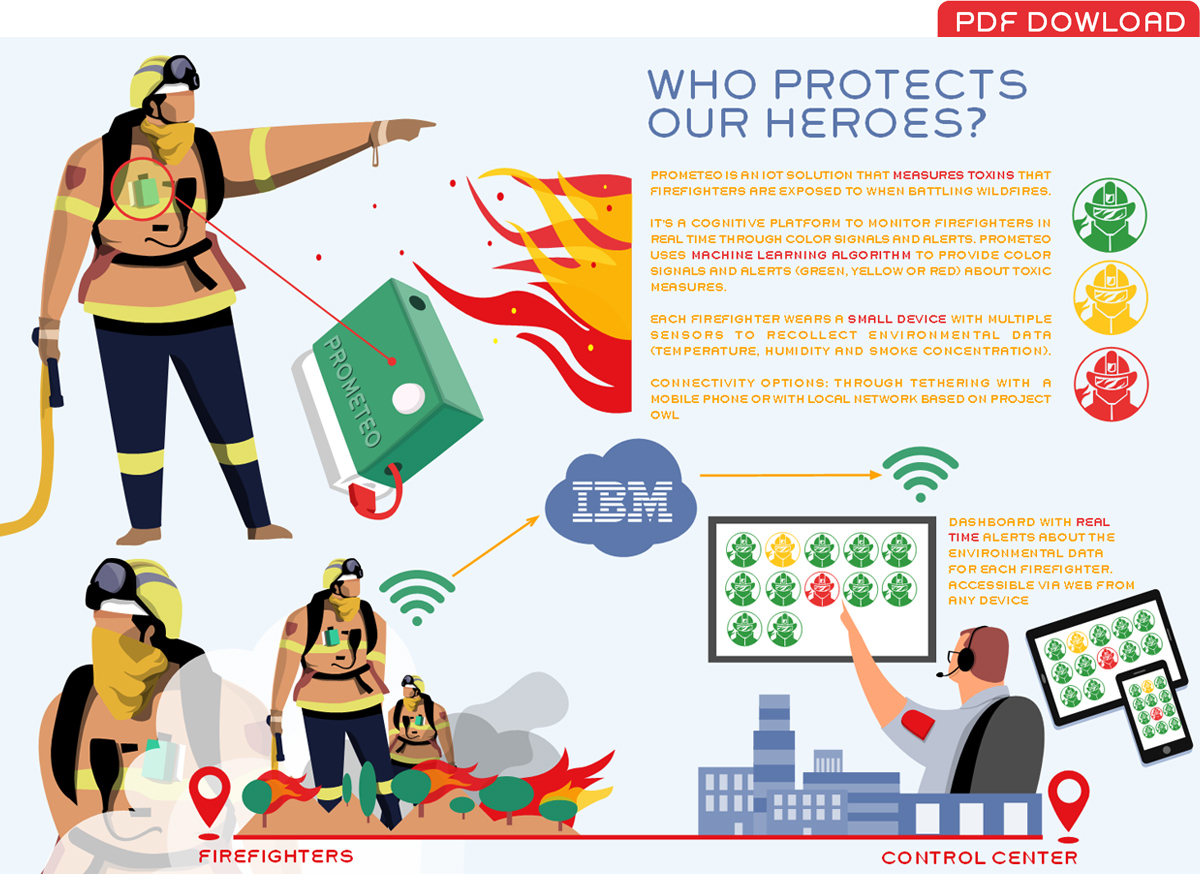How Prometeo created a solution to protect firefighters for The Call for Code Global Challenge
2020-08-11
I've been a supporter and occasional participant in many different tech for good and open government initiatives and hackathons over the years, focusing these days on spending my time on being a mentor. However, I've never come across anything quite as ambitious as The Call for Code Global Challenge.
Now in its third year, The Call for Code Global Challenge is a multi-year global initiative supported by IBM that is aiming to encourage developers, visionaries, and problem-solvers to have an immediate and lasting impact on humanitarian issues, including COVID-19 and climate change. IBM says that the challenge has involved more than 300,000 people from 165 nations, who have created over 8,000 challenge apps.
That's an impressive level of engagement, but I want to tell you about the story of the 2019 Global Winner, called Prometeo, which is a solution that aims to improve the health of firefighters.
About Prometeo

The Prometeo team, (from left) Salomé Valero Cumplido, Marco Emilio Rodriguez Serrano, Joan Herrera, Josep Ràfols, and Vicenç Ferrés Padró.
With the impact of the terrible bushfire season here in Australia over our 2019/2020 southern hemisphere summer still very apparent, the obvious path might be to look at solutions that directly tackle climate change. However, while the extended bushfire season had severe consequences for the communities it touched, we also became aware of the physical and mental toll this has on our volunteer and professional firefighters.
Prometeo was designed to help better manage the physical impact of heat, humidity, and smoke inhalation on the firefighters who put out wildfires in the high-risk area of Catalonia in northeastern Spain. This sounds like a solution that could have global application, including here in Australia.
This great infographic explains how Prometeo works:

Prometeo infographic. Download (PDF).
How the Prometeo team formed
Prometeo is also a great example of how bringing together people with different life and lived experience of the problem being solved can make a huge difference to the success of a tech for good startup. Through the challenge process, the IT team comprising of Salome Valero (project management), Marco Emilio Rodriguez Serrano (data science) and Josep Rafols (software development) that had the idea of helping firefighters came together with firefighter Joan Herrera and nurse Vicenç Ferrés Padró. This partnership was the catalyst for their winning submission.
I had the opportunity to talk to one of the IT team members, Josep Ràfols, about his experience of the challenge.
Josep explained that this was his first time working closely with first responders.
"My previous knowledge about them was through the movies, but as always, reality and movies are very different."
"Working with Joan and Vicenç was very interesting, it was similar to when you travel abroad. They have their own professional culture, and we all needed to learn, adapt and empathise in order to communicate together. Sometimes I was moving too quickly and realised that I needed to explain some basics of IT that they, of course, didn’t understand. Also on the other side, it was similar, and sometimes I really didn’t understand what they were saying, hahaha!"
"At some point, you sync and start to collaborate in a more efficient way, and I think that was the key to success".
About the technology behind Prometeo
The challenge is ultimately about developing a technology-based solution, and I also asked Josep if there was anything in particular that he thought was cool or clever in the way they used technology?
"Prometeo is the sum of not only Internet of Things and Artificial Intelligence, but also computing on IBM Cloud, electronics and 3D printing."
"For me, the coolest was putting it all together and creating something that could be 100% shareable for the community. Imagine creating something that you can share with the rest of the world and someone in Indonesia could reproduce it and use it for their own profit, IT’S AMAZING!"
Winning Call for Code wasn’t the end of the journey for Josef and Prometeo. They have started field testing and invested their prize money into commercialising their solution, intending to expand their mission to help firefighters preserve their health while in the line of duty.
If you would like to explore their solution in more detail, Josep told me that the technology is very cheap to replicate using a 3D printer and you can have your own Prometeo sensor up and running for less than USD$20!
Getting involved with the next Call for Code
Submissions for the Call for Code challenge for 2020 ended on the 31st July but look out for the winners announcement later in October. The challenge will begin again in February next year, in the mean time you can get involved with other Call For Code open source projects as supported by the Linux foundation.
I asked Josep if he had any advice for others thinking of getting involved with the challenge.
He said, "I never thought we could win out of thousands of participants, and even today I'm amazed. I think the message here is to always go for it, not thinking of 'winning' something because the real win is what you’re going to learn walking that path."
This post was sponsored by IBM for the The Call for Code Global Challenge.